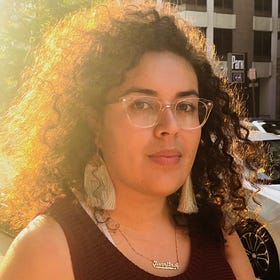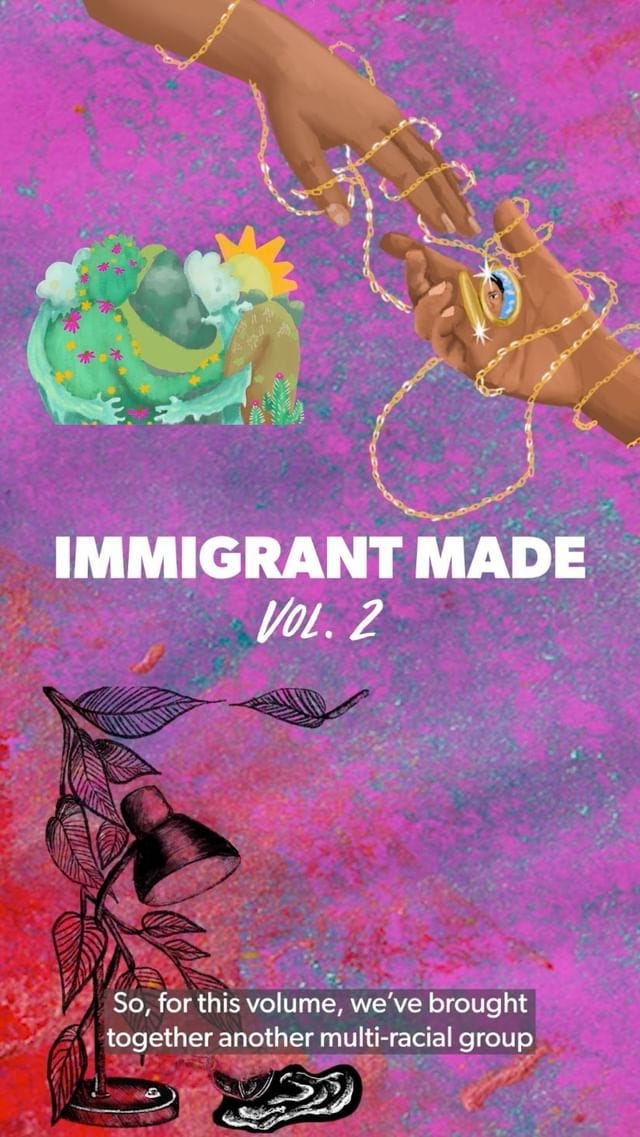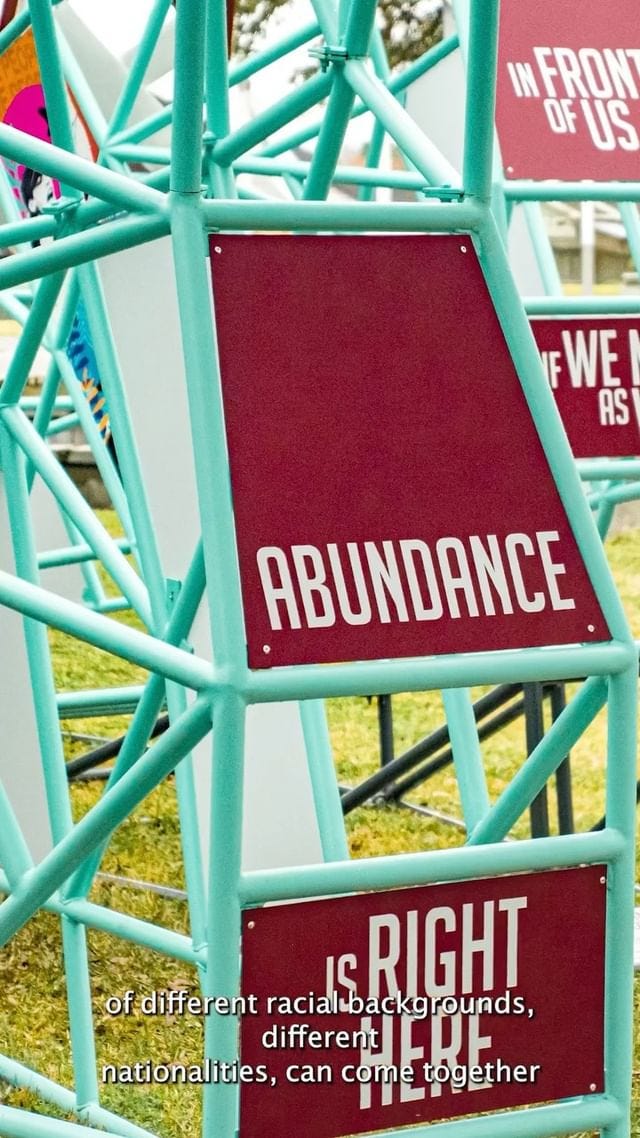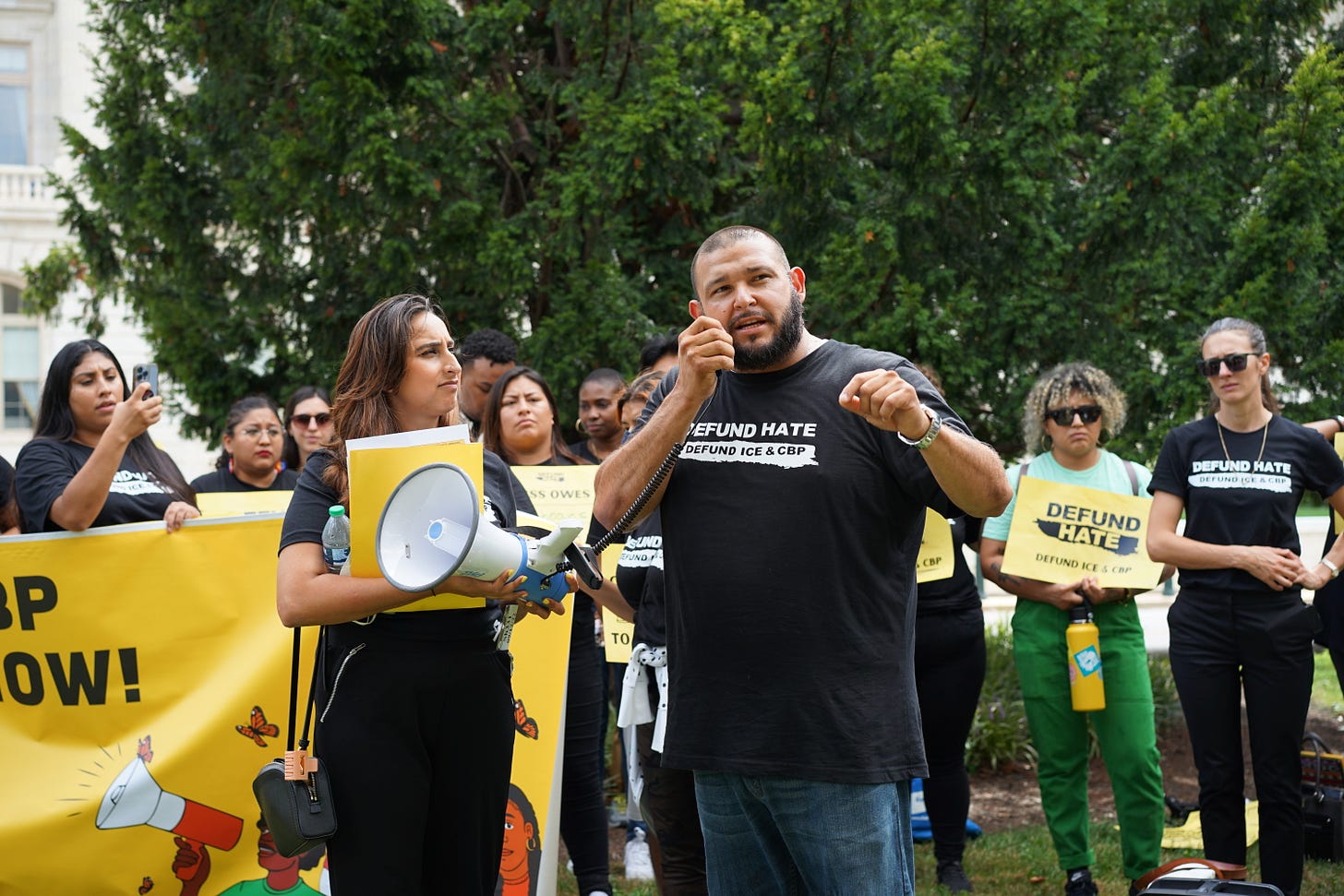“I believe in the power that artists have in changing our world.”
Juanita Monsalve on the culture changing efforts of United We Dream
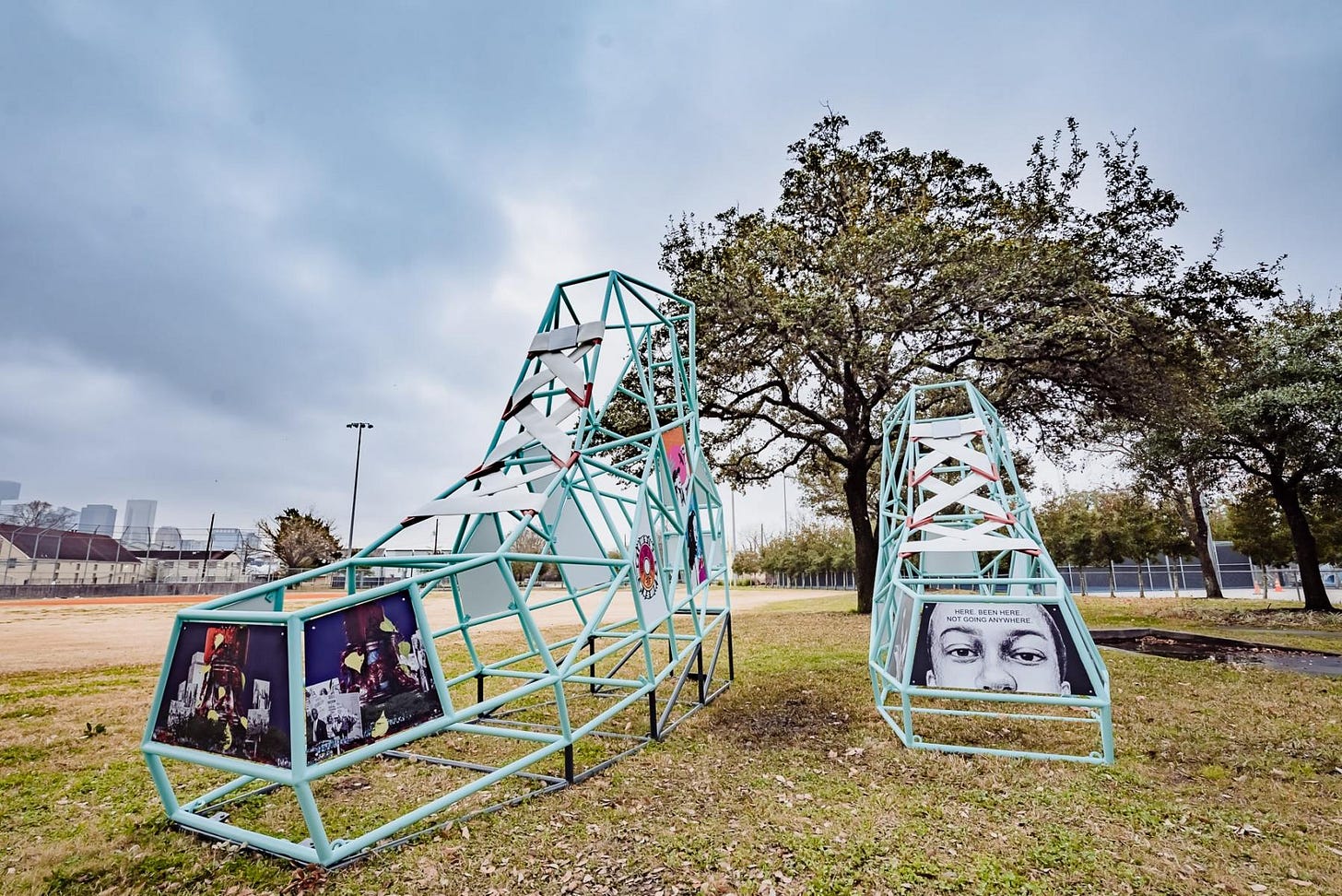
There is a moment during our conversation where Juanita Monsalve has to pause because the emotional heft of this work overcomes her. In discussing her ongoing work as the Creative Director for United We Dream, Juanita’s vision of change remains unwavering. Her passion for working alongside youth leaders is mixed equally with her own personal commitments to justice and freedom.
If you missed the first part of our conversation, check it out here.
"Real justice and freedom doesn't come until all people are free."
During our recent conversation with Juanita Monsalve, the Creative Director for United We Dream, La Cuenta co-founder, Alix mentioned a shirt she received from the organization while marching for immigrant rights in Washington DC several years ago. “The same person who designed that s…
ALIX DICK: Where is United We Dream located?
JUANITA MONSALVE: We're dispersed. I now live in Albuquerque, New Mexico because my partner's from here, but I grew up East Coast. My mom lives in DC so I still feel like that's home a little bit. I lived in DC for 11 years. United We Dream is an organization that operates at the national, state, and local level, and so that means that our membership is all over the country, our staff is all over the country, and we have an affiliate network with organizations led by young people in different parts of the country.
ANTERO GARCIA: I love the foreword you wrote the Immigrant Made zine. You write, "As immigrants, we must be at the forefront of redefining, preserving, and protecting our culture." I'm curious, why these kinds of projects? Why a zine? What's up with shoes? And then the other side of this: Why is this work so important to you?
JM: Those are hard questions. The idea behind cultural change is that I believe in the power that art and artists have and the impact that they can have in changing our world. Each one of these items has a different kind of theory of change behind it. For example, the zine, for us, was another tactic in really thinking about, how can we strengthen and support immigrant artists and people of color artists? The zine has people go through a program with the Writer's Guild where they go to New York City, they go through workshops, and learn how to harness their work and their ability, and they write there.
The zine was us figuring out how can we build a platform where we are allowing young people who are impacted to then say, "Oh look, I was published." I think the reason why there's such a variety of different products that we make is because we're trying to think of all the places in which we can have impact to build more voices, to build more immigrant culture. We are looking at how we strengthen artists for the long run so that they can continue to create and build, strengthening our communities and fighting for our communities.
We are looking at how we strengthen artists for the long run so that they can continue to create and build, strengthening our communities and fighting for our communities.
AD: Wow.
JM: I think when I was writing that, one of the things that came to mind was this idea of immigrant people are visionaries, because they... I always get emotional about this …they see a path where there was none before. [pause] I think for me, coming from Colombia, coming from a country that has really struggled for over 50 years…
[pause]
When I think of immigrant people, I think about the strength that it takes to envision something totally new. That’s what a lot of these art projects are about, allowing that strength to come through and to empower people.
And so we want to encourage all kinds of art. And the zine, not only is their writing done by immigrant and people of color, but also different visual artists were assigned to design along with the writing and to be inspired by the writing of another artist.
The sneaker installation is a little bit different. There's two big narratives that we write and drive at United We Dream right now. One is this immigrant self-love and pride of being immigrants, and then the other one is about abundance and collective care.
And so it's really about building with young people who maybe are not impacted by immigration directly, but do care. There’s this attempt to wedge people of color and separate us. And so we want to be able to build a progressive coalition for the long-term as well. And that means with this giant sneaker installation, we actually worked with Black Lives Matter in Houston and brought our memberships together to be in conversation.
The giant sneaker has art from Indigenous artists, Black artists, and immigrant artists coming together. And the sneaker was really this idea after COVID of bringing people in person around a sculpture. The sculpture really signifies these two shoes moving forward, and so it appeals to this idea as young people, that we really care about our sneakers. We wanted to represent this idea of moving forward together. And so again, a lot of it has to do with bringing artists into the conversation about politics and show the power that art really has to transform our values for the long-term.
When I think of some of those narratives, they are actually the answer to policing and ICE. This work works toward getting people to transform and really believe that we don't need police and we don't need ICE. We can protect each other through collective care. It also fights back against this idea that there isn't enough for all of us, “How dare immigrants come to this country and take whatever!” That's where the value of abundance comes from, this belief that whatever our communities need, our communities will be able to develop and to grow. Once you peel them back, these projects are all tied into using art to ingrain those values in folks.
This work works toward getting people to transform and really believe that we don't need police and we don't need ICE. We can protect each other through collective care.
AD: And your investment in this work?
I think that my investment in it is wanting change for our communities. I think my investment in United We Dream is that I didn't have that. I didn't have a positive political home as a young person. Being a young immigrant person is really confusing because it's like a total transformation of who you are. I really believe in having that space for young people.
I really believe in the emotional intelligence and the drive of young people to change the world for the better. They're the ones that are going to have to exist when we are not here. And so I’m driven by really believing in those values and believing that transformation is possible for our communities for the long run. I’m always thinking about, “What do I wish the world would've been like for me and for my family?”
We’ll conclude our conversation with Juanita about United We Dream next week.
Propina
Next Wednesday, Alix and Antero (and a special guest or two!) will be speaking as part of the Illinois State University’s Creatively Critical Tech symposium. Registration is free and we invite you to get a behind-the-scenes look at the work of La Cuenta.
We’ll see you next week!




